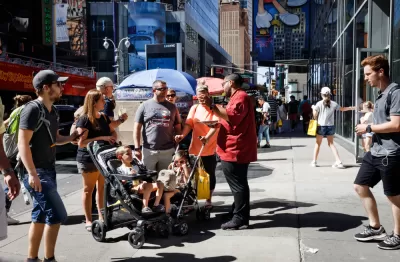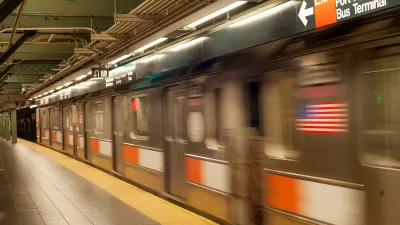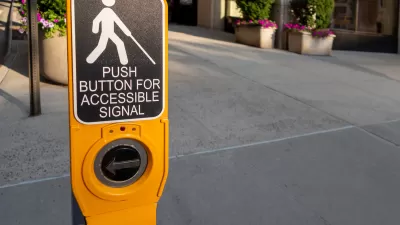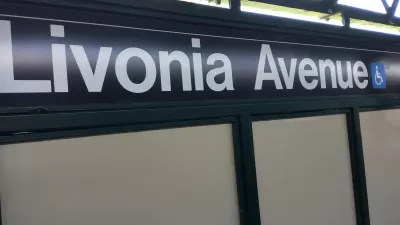A lawsuit has forced New York City to invest significant funds and people power to making the public realm more accessible to people with disabilities.

"New York City plans to hire 500 workers and spend $1.55 billion over the next decade to make it easier for people with disabilities to traverse city streets," reports Dana Rubinstein.
The news comes after a federal judge approved a settlement "requiring New York City to dramatically overhaul its curb ramps, most of which do not meet federal accessibility requirements" earlier this week.
Rubintein provides more specifics on the work that will be enacted for the city's new "Pedestrian Ramp Unit":
The settlement approved Tuesday requires the city to survey every single corner in the five boroughs by October 31 using laser technology. The city is required to conduct two subsequent surveys in 2033 and 2046.
All but roughly 3,100 street corners in New York City have pedestrian ramps — themselves the product of prior litigation — but most of them are not up to code. Upgrades of most non-compliant pedestrian ramps will have to be completed by 2034.
James Weisman, the president and CEO of the United Spinal Association and a signatory to the settlement, calls the settlement "historic" in the article.
FULL STORY: New York City makes a $1.55B, 500-person commitment to accessible street corners

Alabama: Trump Terminates Settlements for Black Communities Harmed By Raw Sewage
Trump deemed the landmark civil rights agreement “illegal DEI and environmental justice policy.”

Study: Maui’s Plan to Convert Vacation Rentals to Long-Term Housing Could Cause Nearly $1 Billion Economic Loss
The plan would reduce visitor accommodation by 25% resulting in 1,900 jobs lost.

Planetizen Federal Action Tracker
A weekly monitor of how Trump’s orders and actions are impacting planners and planning in America.

Wind Energy on the Rise Despite Federal Policy Reversal
The Trump administration is revoking federal support for renewable energy, but demand for new projects continues unabated.

Passengers Flock to Caltrain After Electrification
The new electric trains are running faster and more reliably, leading to strong ridership growth on the Bay Area rail system.

Texas Churches Rally Behind ‘Yes in God’s Back Yard’ Legislation
Religious leaders want the state to reduce zoning regulations to streamline leasing church-owned land to housing developers.
Urban Design for Planners 1: Software Tools
This six-course series explores essential urban design concepts using open source software and equips planners with the tools they need to participate fully in the urban design process.
Planning for Universal Design
Learn the tools for implementing Universal Design in planning regulations.
Caltrans
Smith Gee Studio
Institute for Housing and Urban Development Studies (IHS)
City of Grandview
Harvard GSD Executive Education
Toledo-Lucas County Plan Commissions
Salt Lake City
NYU Wagner Graduate School of Public Service





























